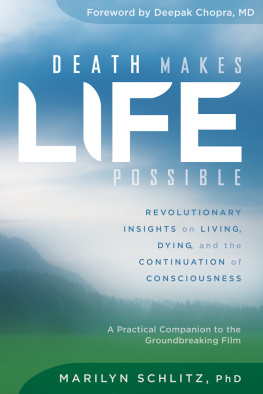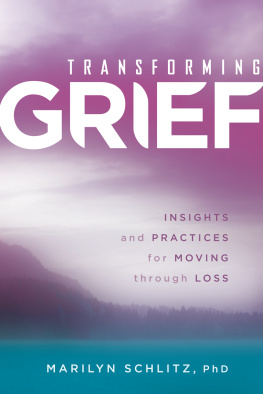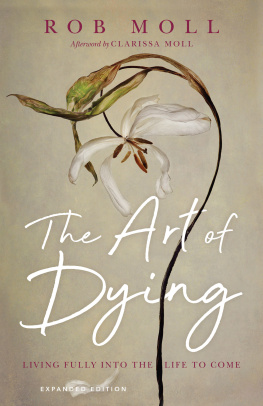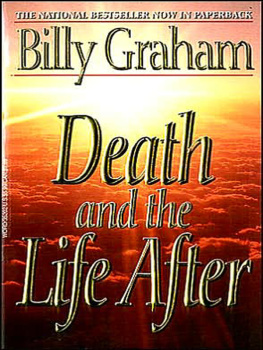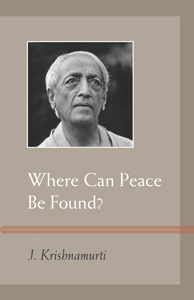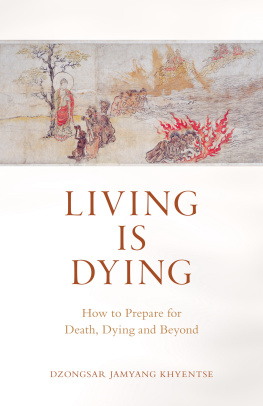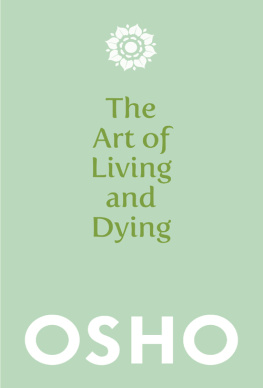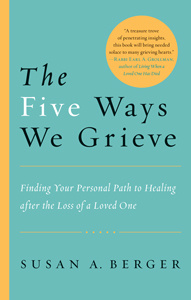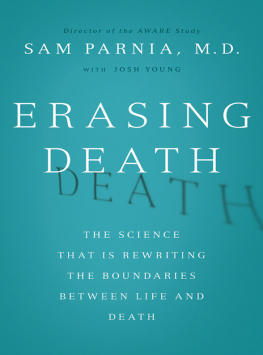
It is truly a great cosmic paradox that one of the best teachers in all of life turns out to be death. No person or situation could ever teach you as much as death has to teach you.... Learn to live as though you are facing death at all times, and youll become bolder and more open. If you live life fully, you wont have any last wishes.
MICHAEL A. SINGER, THE UNTETHEREO SOUL
CONTENTS
Foreword
LIFE IS A STRING OF BEADS
DEEPAK CHOPRA, MD
I have thought about death since the age of six, when my grandfather passed away suddenly. The event was shocking because my little brother and I had spent the day with him a particularly wonderful day that included going to see Ali Baba and the Forty Thieves at the movies and he died in that night. I woke up to hear the women of the house crying out in grief, a terrifying experience.
Its taken me almost a lifetime to fully comprehend that death is what makes life possible. The passing away of one form allows a new one to emerge. This is a continuous and totally necessary process. You were a child, and now that child is no longer here. You were a teenager, and now that teenager is no longer here.
Death offers us the opportunity to return what was given to us at the moment of birth: an invisible gift of potential. We return the gift by having actualized the potential into experience. But as an experience ends arriving at extinction we are always realizing more potential. We are the potential of all that was, all that is, and all that will be. Thats what it means to be alive, connected to a source that keeps replenishing itself. If you can ground yourself right this moment in this eternal potential, which is your fundamental state, then life is a gift and death is a gift.
If you understand that everything in the universe, including your own body-mind, is an activity, and that birth and death are space-time events meshed together in that activity, then both are part of something greater. What is that something in which all events occur? It is consciousness. This is the answer given by the worlds wisdom traditions, which at bottom are not religions but explorations of human awareness. Where is consciousness? Who is having the experience of being conscious?
These seem like enormous questions, so let me ask you a simpler one: What did you have for dinner last night?
Lets say you had pasta. And now as you remember that experience, you have a mental image of the meal, along with the people you were with and the room you were in. I can be sure that youre reliving that experience through mental images; you might even be tasting the food, seeing its colors, hearing the conversation at the table. However, if I were to go into your brain, I wouldnt see a picture that depicts what youre seeing or hear any sounds that youre hearing. The brain is totally silent and dark. I would detect only electrochemical activity nothing like the total experience of life that youre having right now.
So where can we locate that picture, those sounds, those tastes, and where was the electrochemical activity corresponding to the picture before you decided to remember it? Any logical answer would confront a mystery. There is no location for experience in the brain before it is conjured up by an intention. But when I ask you to remember what you ate for dinner, you spontaneously have an intention, which by itself retrieves a memory. The memory was not an electrochemical memory; it was a memory of pictures and sounds and conversations and maybe the taste and smell that, taken all together, constitute your experience.
That was the memory, but it wasnt actually born until I asked you a question. So what did it exist as before that? It existed as a kind of invisible possibility wave in this thing we call consciousness, which has no location. Not just memories, but every experience has this double existence, first as a possibility with no location and second as an event in space and time.
With this knowledge, death looks very different from the complete cessation that everyone fears so deeply. What happens to us after we die? We go to the same place where the memory of pasta was before I asked you the question. In fact, you and I are there now we dont have to wait until the moment of death because existence is a field of possibilities.
An everyday example of this is very close to you: your vocabulary. You have a fund of all the words you know, which amounts to tens of thousands for an educated person. But at this moment, your vocabulary is nowhere in your brain. There is no physical trace of words stored in the brain. Even in your consciousness, your capacity to speak doesnt exist as words. Words exist in the same place as those potential memories weve been talking about. A physicist would call this place the quantum field, a term that has a very long tradition, one that predates the arrival of science. Lord Krishna says in the Bhagavad Gita, I am the field, and I am the knower of that field.
The field in both cases is a consciousness field. The Sanskrit word for field is kshetra. And then the knower of the field is kshetrajna. So we are both the field and the knower of the field, because Lord Krishna speaks for all consciousness. To use another phrase of Krishnas, we curve back in ourselves to create the experiences that we call memory, which are embedded as potential. What is this curving back? Self-awareness, the most basic property of consciousness. Theres a Sanskrit word for how memory is stored and activated: sanskara. Sanskara is not a memory; its the seed of a memory in other words, a potential memory.
The way in which a potential is able to emerge as a particular event corresponds very beautifully to what in physics is called the observer effect. Before you observe a subatomic particle, it exists as a possibility wave. Then you have the intention to observe it, and there it is, a specific isolated photon or electron. Thanks to the double life that prevails at every level, an isolated particle tells only half the story, because whether it is emerging or disappearing, a particle never leaves the field, just as a wave on the ocean, even as it rises and falls, never leaves the totality of the sea. You are in that field right now, participating in its doubleness. The next word you say, which will be an isolated event, depends on you retrieving it from the field.
Are you afraid to go there? No. We can surmise, from the way existence operates, that you will return to the same field after you die. Nothing in nature indicates that the continuum ever ends. Once you understand existence, so-called nonexistence is never the same again. This is true of the physical world as a whole. When I say This is a table or This is my body, Im experiencing colors and sounds and tastes and textures. In modern language, theyre called qualia, for qualities of consciousness. Everything I call the objective world out there is constructed out of the qualities of consciousness within myself.
If I say within myself, who is me? If you go inside my brain, you wont find me. Because the sensation I is also one of our qualia. It has to be, because reality is only known through experience, and experience is a mass of ever-changing qualia. As thoughts, sensations, images, and feelings flow through me, they form everything I know or can possibly know. Whatever may exist outside qualia, the human brain cannot experience it. Like the sensation of I, the sensation you is also a quale. They are both in the field.
Do you remember what you were doing three weeks ago on Thursday? You most likely dont. We remember only those things that are practical or that have emotional significance. If three weeks ago on Thursday, you fell in love, youd be a hundred times more likely to remember the date and what was happening. Emotions are very strong qualia of consciousness. Emotional thought forms are the qualia that keep the bonds of life going. Its a continuum of linked qualia pictures: the past exists as potential that I can retrieve, the future is potential that I can create, and at this moment, Im free of both.
Next page
